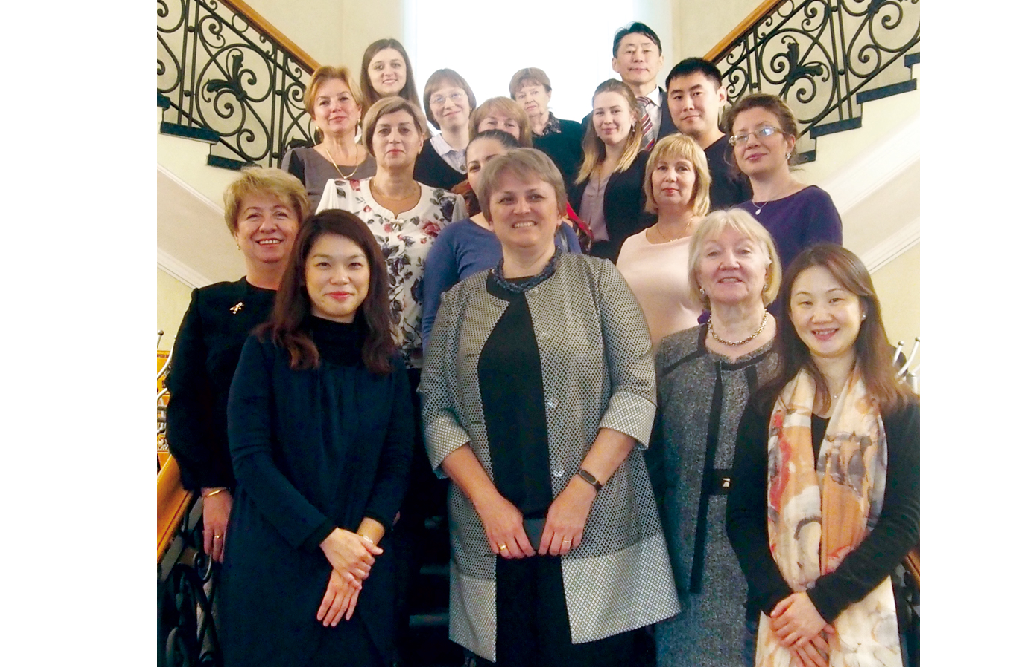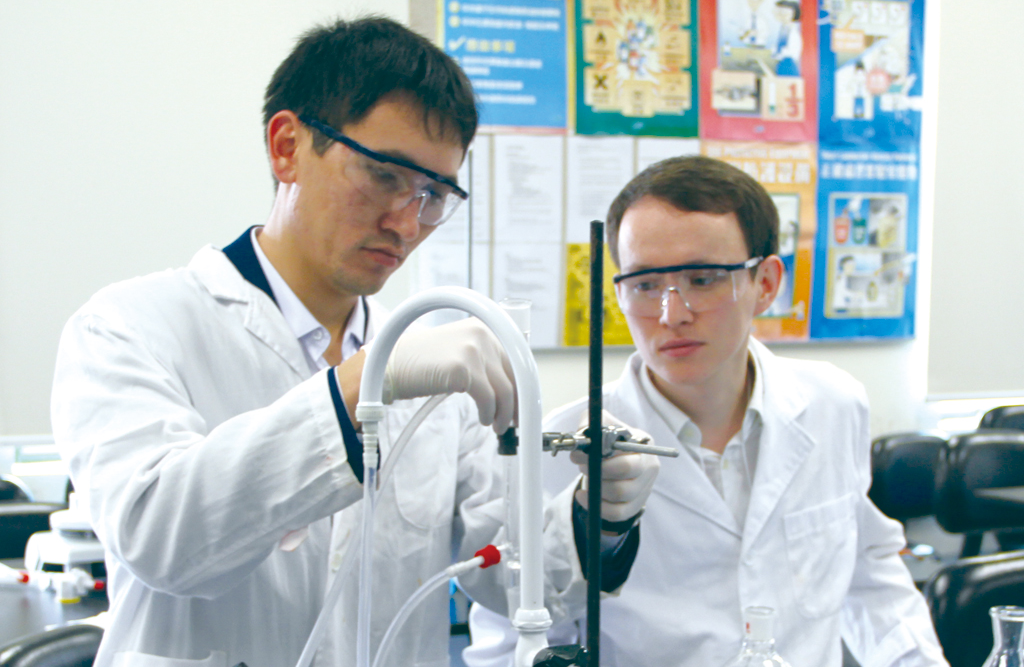The University improved its overall performance in this year’s Research Grants Council (RGC)’s General Research Fund (GRF) and Early Career Scheme (ECS) funding exercises. About a quarter of its total submissions were successful (37 of 147), resulting in total funding of HK$21.46 million. This represents a 12 per cent increase in newly approved projects over the previous year and a 17 per cent rise in the overall funding amount.
- In the GRF exercise, EdUHK had a 22.22 per cent success rate (26 projects approved out of 117 submissions). Total GRF funding for EdUHK scholars was HK$15.65 million. Of the University’s 26 approved GRF projects, 77 per cent scored 4.5 or above out of a top score of 5.
- The University was granted funding for 11 ECS projects out of 30 submissions, a success rate of 36.67 per cent. The total awarded amount for these new projects was around HK$5.82 million.
- In the GRF and ECS exercises, the University was once again ranked first in the subject discipline of Education, both in terms of the number of projects awarded and total funding. Its 18 awarded education projects received HK$10.13 million, or 40.94 per cent of the total funding amount.
- Eight of EdUHK’s 37 newly awarded GRF and ECS projects were in the discipline of Psychology and Linguistics, with a total awarded amount of HK$5.37 million. This accounts for 23.04 per cent of the RGC allotment for this discipline.
- The University performed well in securing Social and Behavioural Sciences grants, achieving a 35.71 per cent success rate (five approved projects out of 14 submissions).
- Nearly a quarter (24.24%) of the University’s submissions to the GRF Humanities and Social Sciences Panel (24 projects out of 99) were successful.
- Five of EdUHK’s 11 submissions in Psychology and Linguistics were accepted (45.45% success rate), with an awarded amount of HK$3.14 million (nearly two-thirds of the total available funding). This places the University first in this discipline, both in the number of awarded projects and funding amount.
- The University also had two successful Humanities and Arts projects out of three submissions, with combined funding of HK$0.62 million.
As at June 29, 2018, EdUHK researchers were engaged in 175 ongoing and newly approved projects, supported by HK$105.83 million from the RGC and other funding bodies*. The projects represent a diversity of subject disciplines, including education, the humanities and arts, psychology and linguistics, social and behavioural sciences, and physical and health sciences.
The University completed 43 RGC-funded research projects during the reporting period, covering topics such as special education needs, public policy, literature, and environmental studies. In the same year, EdUHK academics produced 796 refereed journal articles, books or book chapters, 51 per cent of which were related to various sectors of education, including early childhood, primary, secondary, technical and special education.
- *Other funding bodies included the Policy Innovation and Co-ordination Office, the Food and Health Bureau, the Standing Committee on Language Education and Research, the Innovation and Technology Commission, and the Environmental Protection Department.
Last October, the University was appointed World Bank consultant for Vietnam’s Enhancing Teacher Education Program (ETEP), a nationwide project that is part of the Vietnamese government’s Fundamental and Comprehensive Education Reform. The appointment was made after a rigorous selection process, in which EdUHK stood out from top universities and education consultancies in Asia, Australia, Europe and North America. As part of the project, an EdUHK expert team paid monthly visits to the country’s eight government-designated Lead Teacher Training Universities (LTTUs) during the reporting year, advising them on capacity building, teacher professional development and strategic planning.
The University subsequently signed a memorandum of understanding in May 2018 with six of the LTTUs involved in the ETEP to enhance academic exchange and collaboration, and promote greater knowledge and understanding of the history, culture, and economic and social life of the region. This was followed by a second appointment by the World Bank in the same academic year. EdUHK was selected to be the consultant for a project to help reform Vietnam’s higher education sector, starting with the country’s flagship comprehensive universities.
Apart from its primary focus in local teacher education, the University was active in extending its reach to Belt and Road countries to share its knowledge and expertise in education.
The University was actively involved in building knowledge-exchange partnerships with institutions across Eurasia during the reporting year. In December 2016, nearly 60 Kazakhstani in-service teachers visited EdUHK to learn how to use English to teach STEM subjects and observe local secondary school classes. EdUHK trainers also travelled to Suleyman Demirel University in Kazakhstan to build English teachers’ capacities in preparation for the country’s transition to English as the primary teaching medium.
In Russia, EdUHK collaborated with the Russian Academy of Education in November 2017 to train more than 100 teachers in assessment and inclusive education. In another partnership, with Minin University, in the Russian city of Nizhny Novgorod, EdUHK experts advised local teachers on useful English teaching strategies for students whose first language is not English.
There will be further collaborations between EdUHK and its Eurasian partner institutions towards the end of 2018. In October, the President will speak to the rectors of all of Russia’s Pedagogical Universities in Moscow on EdUHK’s development and the implication for its Russian counterparts. In the same month, in Minsk, Belarus, EdUHK will help design the Continuing Teacher Professional Development programme for the Belarusian Chinese programme.
EdUHK partnered with Philippine Normal University (PNU) in January 2018 to hold knowledge-exchange workshops in Manila for Filipino teachers. The University then hosted PNU teachers for a three-week development programme in July. The visiting educators, who were also PhD candidates, had numerous opportunities to network with EdUHK academics and research students.
The University’s Education Salon, initiated during the reporting year by Council Chairman Professor Frederick Ma Si-hang and President Professor Stephen Cheung Yan-leung, is a high-level platform that facilitates the exchange of ideas on issues pertaining to education. It allows the University to engage with policymakers, lawmakers, school leaders and education professionals to generate ideas and proposals for ongoing educational development.
In line with the University’s ongoing efforts to promote environmental studies as a discipline complementary to education, a new branch of the State Key Laboratory in Marine Pollution (SKLMP) was opened in June. China’s Ministry of Science and Technology selects, funds and oversees State Key Laboratories to address scientific issues of national importance. The University’s SKLMP branch will support pioneering research and provide evidence-based advice on how to handle marine pollutants that have significant environmental and public health effects. The lab will be at the forefront of efforts to examine the prevalence and health effects of endocrine-disrupting chemicals (EDCs) in the environment.
During the reporting period, our academics conducted studies with potential policy impact in the Middle East and the United States (US) and built research and exchange partnerships with institutions in the European Union (EU). This included increased involvement in the Erasmus+ International Credit Mobility project in the academic discipline of speech-language pathology and learning disabilities, which promotes student exchange between EU and non-EU universities; research into how family dynamics, home life, classroom activities, and school life may affect the academic performance of Qatari students; and evidence-based projects to improve teacher-family engagement, teacher quality and student language proficiency in US schools.
EdUHK also launched a three-year Research Scholar Exchange programme in December 2016 in partnership with McGill University in Canada, providing a common platform for education scholars from Hong Kong and Canada to explore and develop research projects in multi-sociocultural settings.
EdUHK made a successful debut at the International Exhibition of Inventions of Geneva, with all three of the University’s submissions winning silver medals. The education technology (EdTech) inventions included a comprehensive waste receptacle, which shows primary school students how to properly discard recyclable plastic in eight categories; a portable, pedagogy-embedded data logging device, which facilitates students’ collaborative and self-regulated learning of STEM; and a play-based training kit for teachers, which helps ADHD and special education needs (SEN) students enhance their executive function skills in play-based learning activities using AR apps.
Now in its third year of operation, the Academy of Hong Kong Studies and its research arm, Social Sciences Data Laboratory (SSDL), provide high quality support in research design, data collection, data analysis and report writing, among other services. The facility is equipped to collect data through telephone surveys, street intercepts, school surveys and focus groups. During the reporting period, the SSDL served academic and private sector clients by conducting research projects on various topics, including the financial independence and national identification of Hong Kong youth; the business index of the construction industry; and the long-term tracking of the Chief Executive’s popularity on social media.









